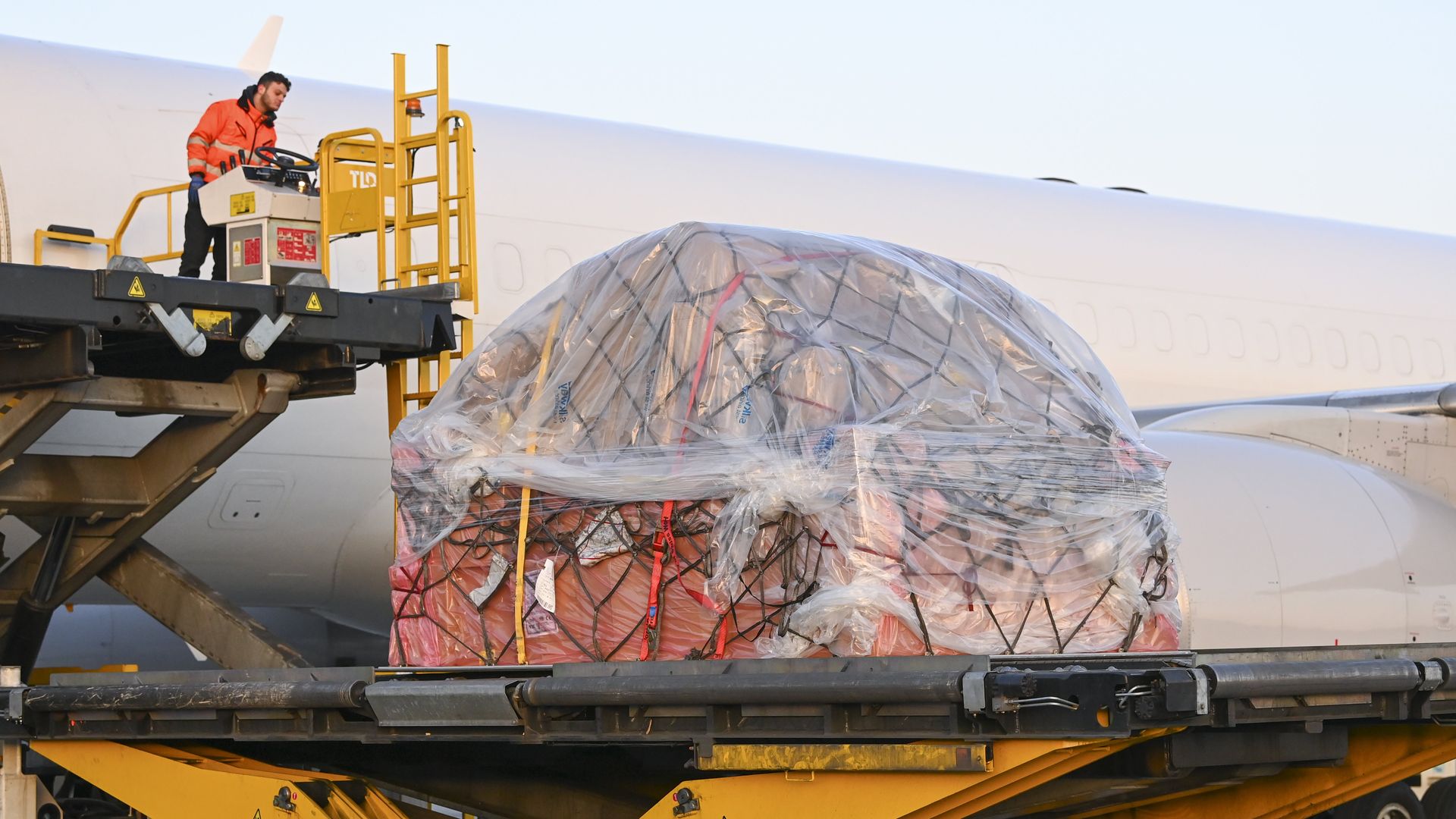Mar 24, 2020 - Economy
Freight disruptions significantly delay vital coronavirus supplies
Add Axios as your preferred source to
see more of our stories on Google.

A new shipment of facemasks arriving in Liege, Belgium, on March 23. Photo: Vincent Kalut / Photonews via Getty Images
